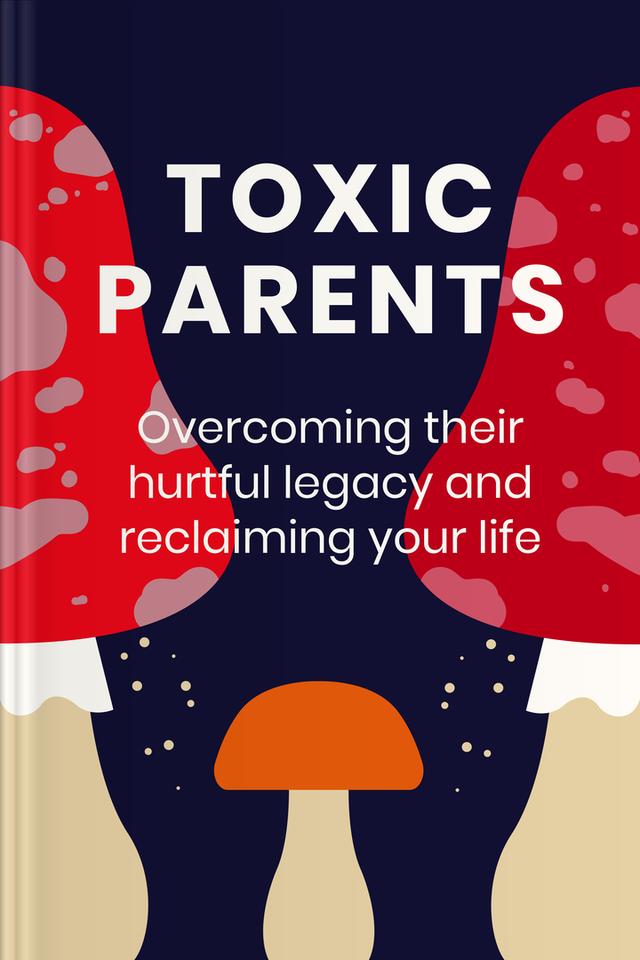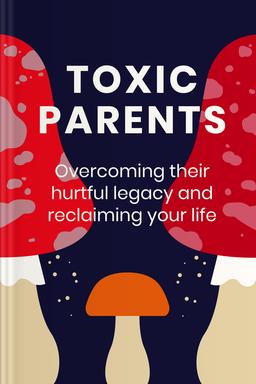You’ll learn
- How much your upbringing continues to influence you
- Why you can’t rush forgiveness
- The importance of defining yourself
- Ways to navigate confronting your parents about their mistakes
Protect the world’s peace. Donate to support Ukraine

first KEY POINT
Parental actions can help a child learn to love, respect, and be independent or experience fear, obligation, and guilt. The adults we become are direct results of our childhood. So, while we must assume responsibility for our adult lives, we should not ignore the influence of childhood events. By understanding their importance, we can focus on giving our children the best experiences possible.Many issues you face today, whether at work, with your partner, or with your children, might be connected to the pain you experienced years ago. Fixing these problems requires digging for the source, often hidden within childhood. And while our traumas are unique, you are not alone in processing them.
All toxic parents are different, but we can categorize them into the following groups:• Inadequate parents who make their children perform adult duties
• Hovering parents who control every minute of their children’s lives
• Alcoholic parents whose children have to clean up after them
• Emotional abusers who use derogatory remarks that rob their children of self-confidence
• Physical abusers who lash out at their children and make them feel guilty
• Sexual abusers who traumatize their children overtly or covertly
This summary aims to uncover the childhood pain that affects you now. Then, as a parent, you can choose a different parenting strategy to ensure a positive and secure upbringing for your child.
second KEY POINT
There are different types of toxic parents, but regardless of the type, their children struggle with damaged self-esteem and a sense of worthlessness that often leads to self-destructive behaviors and inadequacy.Godlike parents assume they must be perfect in the eyes of a child. Children with godlike parents have two cardinal thoughts : “I am bad, and my parents are good,” and “I am weak, and my parents are strong.”These thoughts prevent the child from acknowledging their parents are human and can make mistakes. Denying these truths erases the hurt parents caused, whether the child knowingly ignores or forgets the parents' wrongdoings. Sometimes, people rationalize the pain and discomfort by explaining and excusing those mistakes.Inadequate parentsPrimary responsibilities for adequate parenting include providing for a child’s physical and emotional needs and setting moral and ethical guidelines. Inadequate parents don’t cater to their children’s needs. Moreover, they expect the kids to take care of them instead.Controlling parentsOvercontrolled children grow into dependent, fearful, and inadequate adults. They don’t fully separate from their parents, who continue to heavily influence their kids’ lives, disguising their control with care or concern. Such parents feel rejected when it’s time for their child to gain independence.When adult children attempt to free themselves from these shackles, the parents guilt-trip them and tag them as disloyal. If that does not work, they resort to manipulation. People react to intense control from toxic parents in two ways: capitulation or rebellion, and both responses are a form of control.Alcoholic parentsThese parents play the charade of “the normal family,” making the child hide the truth and constantly frightened to reveal it. A parent whose senses are dulled behaves irrationally, manifesting as abandoning the child’s basic needs.

Continue reading with Headway app
Continue readingfirst KEY POINT
second KEY POINT
third KEY POINT
fourth KEY POINT
fifth KEY POINT
sixth KEY POINT